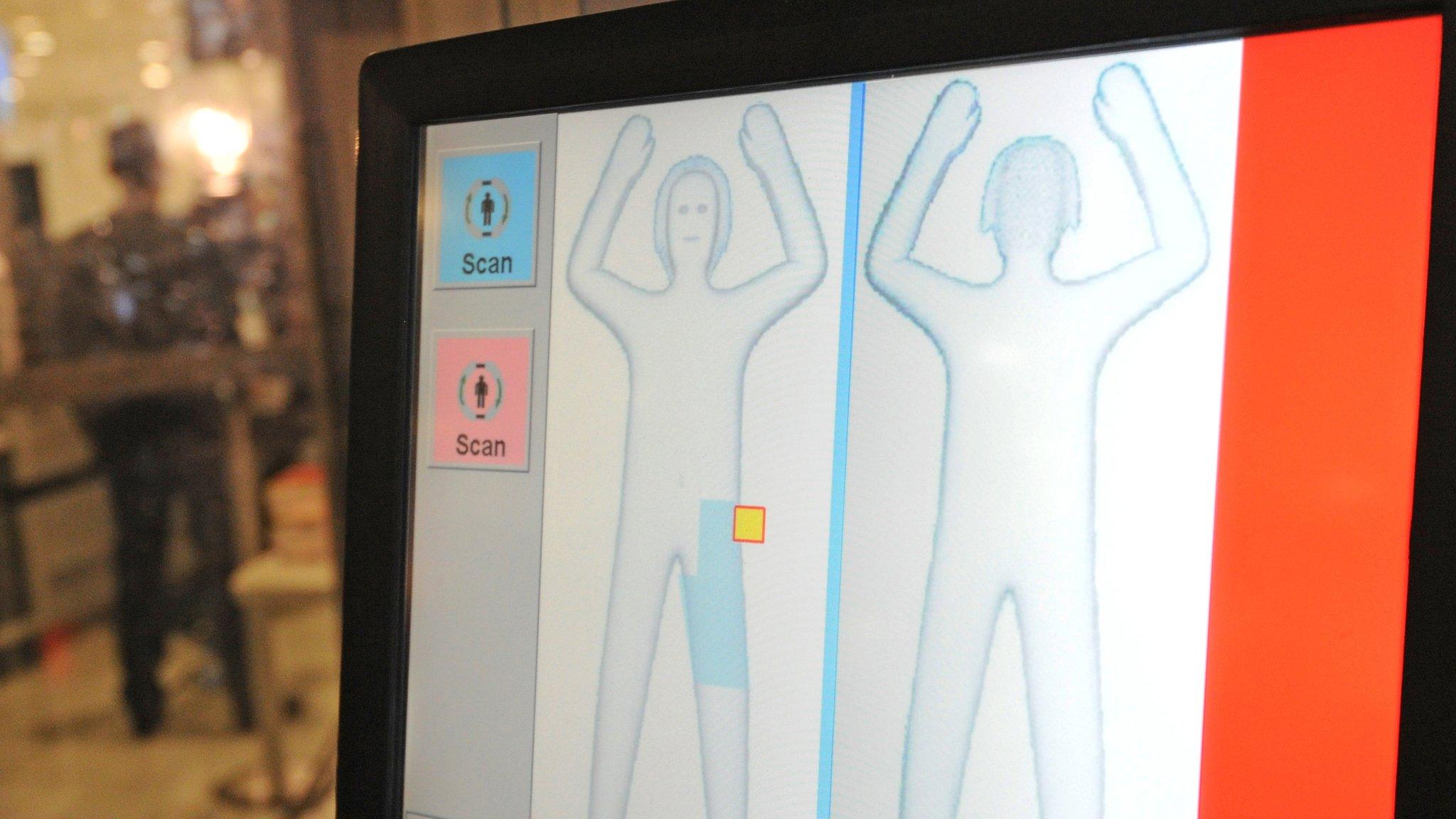UK airports running 'as normal' after US terror warning
- Published
The BBC's David Eades and Frank Gardner explain what is behind the move
UK airports have said they are running as usual, after the US urged tightened security amid warnings of a "credible" terrorism threat.
A senior official from the US Department of Homeland Security told the BBC no delays to inbound flights were expected in the next few days.
He added that new measures have yet to be formally implemented.
Heathrow and Gatwick both said they were operating "as normal". Staff at Manchester are swabbing hand luggage.
Evolving threat
Number 10 said there was an "evolving threat" to the UK and other countries but people should travel as usual.
US officials believe Islamist terrorists are developing bombs that could evade routine checks.
The US is concerned that al-Qaeda affiliates in Syria and Yemen are working together to try to design such a bomb.
Meanwhile, police in Uganda have increased security in the capital Kampala following a "specific threat" of a planned attack on its main international airport at Entebbe.
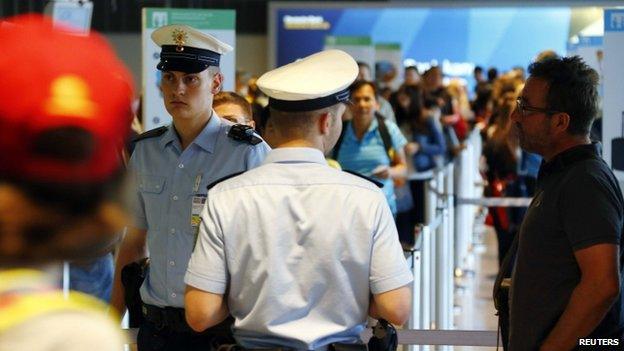
Security has been stepped up for US-bound flights at many airports, including Frankfurt in Germany
Security measures are being tightened for flights to the US from around the world.
A US Department of Homeland Security (DHS) official said the changes were a response to a "real-time" and "credible" threat, but he could not comment on specific intelligence matters.
And an official told the BBC on Thursday that the department had reached out to airlines impacted by the directive and new measure would be implemented in the next few days.
David Cameron: ''It's very important that we always put safety first''
BBC transport correspondent Richard Westcott said eight UK airports run direct flights to the US and none had so far reported security delays.
UK Transport Secretary Patrick McLoughlin did not specify what security steps would be involved, but earlier ruled out "significant disruption" to passengers., external
David Cameron said the government had discussed the issue with the US and decided to bring in "extra precautions".
"It's very important that we always put safety first, and we do," the prime minister said.
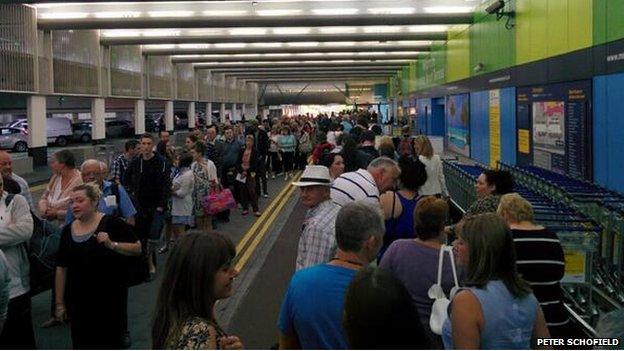
Passenger Peter Schofield took this picture of the queue at Manchester Airport
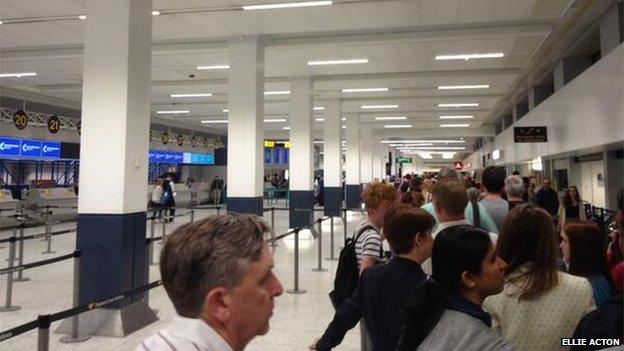
Manchester Airport said waiting times had returned to normal following increased queues earlier
Ellie Acton said queuing at Manchester Airport earlier was an "unpleasant experience".
"It took me over an hour to get through security with approximately 20 minutes spent standing outside queuing in the car park," she said.
"[I] felt very sorry for those starting their holidays. Very stressful."
Manchester Airport said there were increased queues earlier but waiting times had returned to normal.

What is the security risk?
Frank Gardner, BBC security correspondent
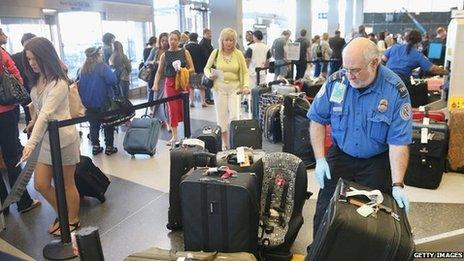
The unspecified measures will be put into place in some airports with direct US flights
This new increased threat warning has been triggered by a fear amongst western intelligence agencies that some of al-Qaeda's sophisticated bomb-making expertise has proliferated out of Yemen to Syria.
For the last five years jihadists in Yemen have been working on so-called "artfully-concealed devices" - hard-to-detect explosives that contain no metal and emit only a faint vapour.
Three times now they have been able to smuggle these onto international flights. Only one exploded, killing the man carrying it but nobody else, after the plane landed.
There is equipment in place to detect such devices at most major UK airports but it is not used on every passenger.
What is alarming the US Department for Homeland Security is the possibility that jihadists with European passports are now in Syria, learning how to construct such devices before returning home.

Al-Nusra Front, al-Qaeda's affiliate in Syria, and Yemen-based al-Qaeda in the Arabian Peninsula (AQAP) are believed to be working together to try to develop explosives that could avoid detection by current airport scanners.
Security experts told the BBC the best defence against such devices was a combination of body scanners and ion scanners.
The former reveals concealed devices - even those hidden inside a person's body - and the latter detects the tiniest particles of explosive residue.
Both are used at most major UK airports, but only on a minority of passengers, alongside more common measures including X-ray scans, pat-downs and swabs.

Thwarted AQAP plots
August 2009: AQAP bomb-maker Ibrahim al-Asiri sends his brother from Yemen to Saudi Arabia to assassinate a senior Saudi prince. The device explodes next to the prince but kills only the bomber
December 2009: AQAP sends Nigerian Omar Abdulmutallab on a flight to Detroit with a bomb hidden in his underpants. He lights the fuse, but is overpowered before it goes off
October 2010: AQAP sends two bombs hidden inside printer ink toner cartridges on cargo flights destined for Chicago. One is intercepted in Dubai, the other at East Midlands Airport after a tip-off
May 2012: AQAP gives a newly upgraded airline bomb to a supposed suicide bomber, but he is a Saudi double agent and he passes it to Saudi intelligence

- Published3 July 2014
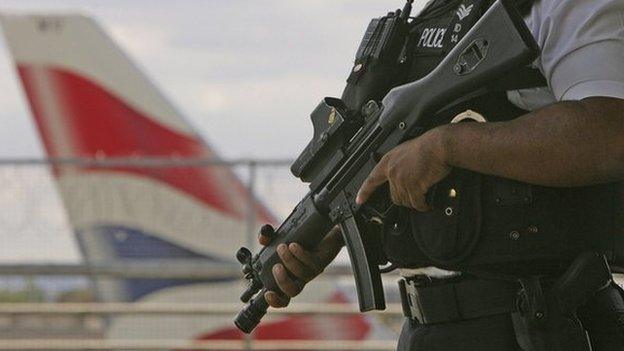
- Published3 July 2014
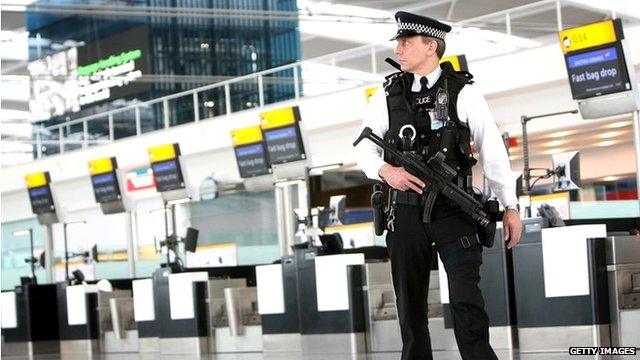
- Published4 December 2013
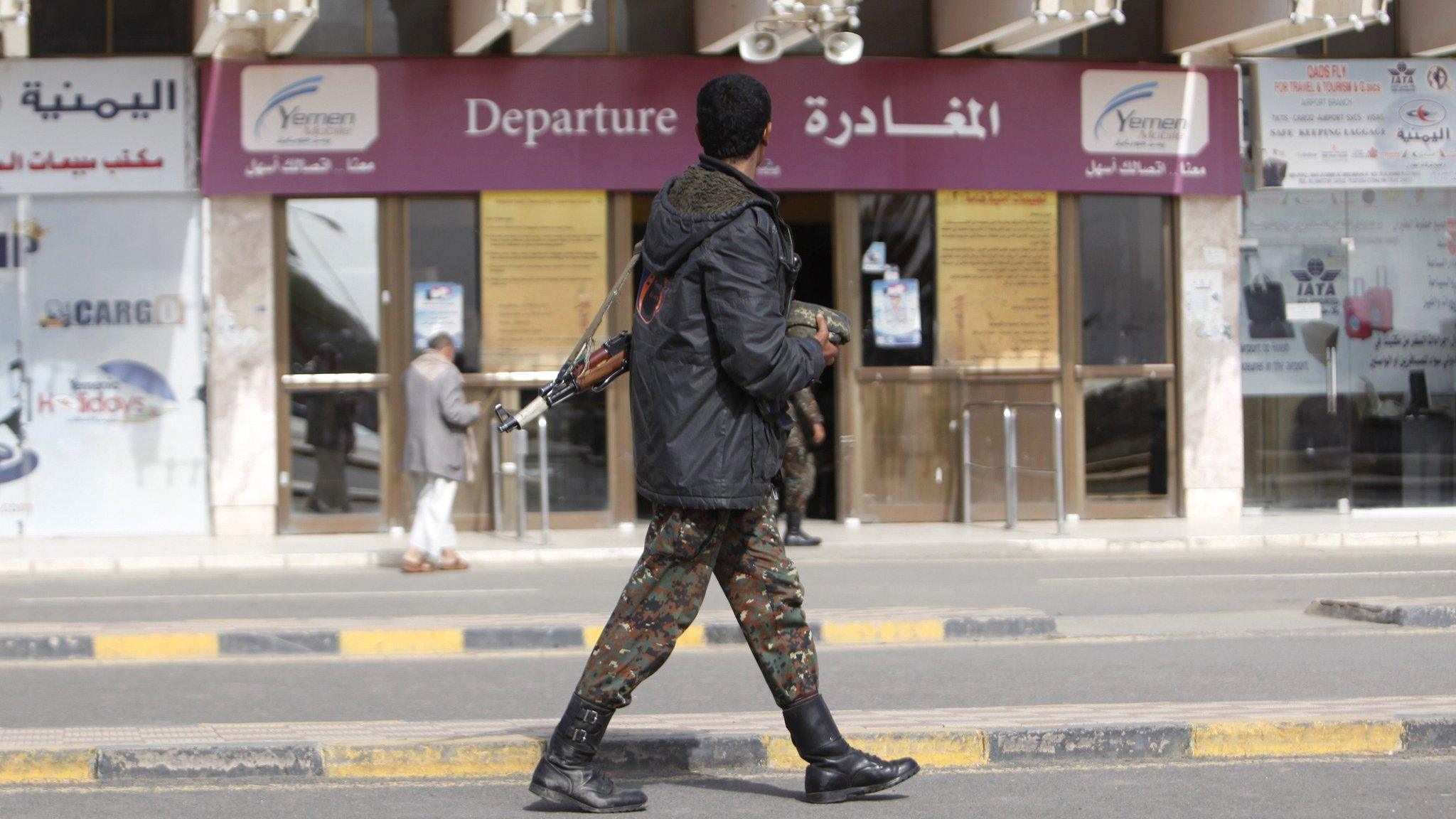
- Published4 December 2013
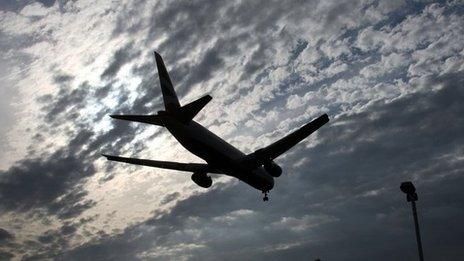
- Published3 July 2014
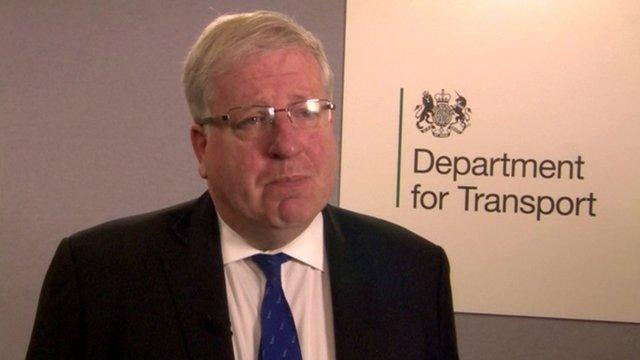
- Published23 May 2012
